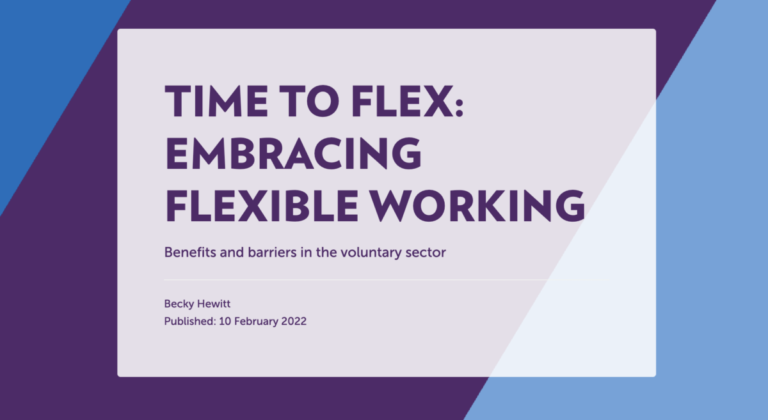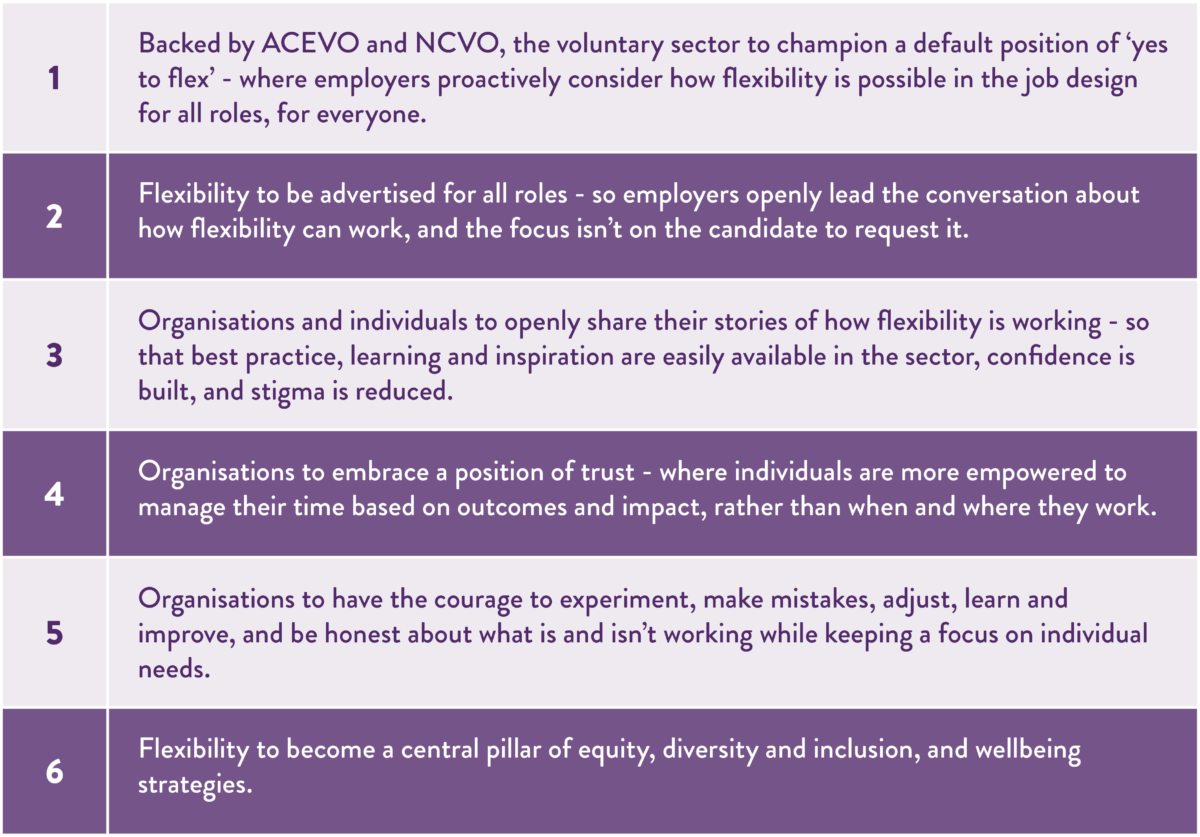Report: Voluntary sector requires shift in mindset on flexible working

Voluntary sector roles should all be flexible, with open conversations held across organisations on how to make this work. However, this requires a mindset shift across the sector, with it currently too often left to employees to sort out says a new report from NCVO and ACEVO, with Starfish Search.
The report – Time to Flex – is based on research and interviews with leaders and employees across the voluntary sector by the Flexible Working Group, announced in August last year and set up in September, and chaired by former Changing Faces CEO Becky Hewitt. It calls for flexible working to be central to the future of work within charities, saying that this is vital to attracting and retaining talented people and essential for building inclusion, diversity, equity and wellbeing.
Often however, it’s left to staff to find a flexible working solution with some feeling pressure to over compensate for their working patterns without proper organisational or structural support.
Advertisement
Ama Afrifa-Tchie, Head of People, Wellbeing & Equity, Mental Health First Aid England and a member of the Flexible Working Group said:
“It’s about setting boundaries and working smarter. It’s also about empowering my team so that I don’t need to be in every single meeting. We need to change mindsets so the focus is more on outputs rather than presenteeism.
“So many people have had to work differently during the pandemic and a big part of making flexible working a success is providing people with the tools and guidance to support them. The decision-makers in organisations must also ask themselves how equitable they are being, and how inclusive are you in involving your workforce to co-design your workplace culture.”
The report’s six recommendations

It also includes practical tips, case studies and links to resources to support leaders, managers and individuals to approach flexible working in their organisations. According to NCVO and ACEVO there are plans for a second phase, which could include more in-depth training and toolkits to support voluntary organisations to implement flexible working.
Becky Hewitt, Chair of the Flexible Working Group, said:
“Many charities are facing a moment where the need is greater than ever before – while resources and funds are increasingly stretched. Our passionate, committed and mission-driven workforce often ‘lean in’ themselves, working long hours in service of the cause and not wanting to ‘let anyone down’.
“Yet Covid-19 has taught us that we can work differently – and more flexibly – when the will is there. From our conversations across the sector, it’s clear there is now a unique opportunity to build on what we have learnt during the pandemic and move on from outdated ways of working – redesigning work in the voluntary sector so that supporting people’s ‘whole selves’ and productivity can go hand in hand.”
Sarah Vibert, interim Chief Executive, NCVO, and Vicky Browning, Chief Executive at ACEVO, commented:
“Increasingly, ACEVO and NCVO members tell us that they’re interested in implementing more flexible working arrangements in their organisations. The subject is now particularly important given the changes to the way we organise work brought about by the pandemic and the need for a more inclusive culture.
“We want to create a culture in the voluntary sector that values and champions flexible working. Flexible working promotes wellbeing in the workplace, and it increases productivity. It’s critical for inclusion. It’s important for attracting and retaining a talented, diverse pool of staff.”
More on flexible working
A second study released this week puts the charity sector as the UK’s third most progressively flexible job sector.
Conducted by e-learning platform Preply, the study analyses January 2022 job listings, ranking each job sector by the % of roles that offer the option for remote working. The analysis also highlights the UK cities seeing the highest increase in demand for those specifically looking for remote work.
Findings include:
- Offering the third-highest ratio of remote job roles, job role descriptions found for the charity sector which detail the option for remote work make up for 16% of total number of jobs listed.
- The charity sector has the 10th greatest amount of part-time remote job roles – 15% of the remote jobs listed were part-time positions.



